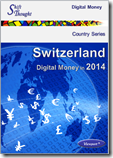We share highlights from our recently published reports on the Indian and Singapore markets. We have planned various events around the Terrapin conference in Singapore from 21-25 April. Join us to help make our very first Road-Show a success.
We believe some of the more interesting bits of our research on Singapore related to the role the country can play in catalysing non-cash payments in South-East Asia, and indeed, within the wider Asia Pacific region. Let me explain why.
As I write this blog, our team is currently chatting with the Aam Admi in India ( the common man, not the political party, though they too have a way of creeping into most conversations now that elections are on).

As I made my way, still wide-eyed from the experience of our wonderful new Mumbai airport, and the speed with which I was bundled out of customs, I saw a huge glass building with StarHub emblazoned on it. I fell to wondering what exactly StarHub was doing in India.  As their stated aim (quoting from their website today) “will always be focused on providing every home and every business in Singapore with world-class services”, why such a big presence in India? I learnt that not only is StarHub the No. 2 mobile operator in Singapore, but it also has a variety of other interests (TV, Roaming services and more), in a number of other countries, including India. For that matter, so does the SingTel Group , that includes the No. 1 operator in Singapore, and a great many other Singaporean companies.
As their stated aim (quoting from their website today) “will always be focused on providing every home and every business in Singapore with world-class services”, why such a big presence in India? I learnt that not only is StarHub the No. 2 mobile operator in Singapore, but it also has a variety of other interests (TV, Roaming services and more), in a number of other countries, including India. For that matter, so does the SingTel Group , that includes the No. 1 operator in Singapore, and a great many other Singaporean companies.

Understanding what Singapore based groups are currently achieving in the 4.2 billion+ Asia-Pacific market is, to my mind, even more important than what they are doing in their home market of 5 million. That is why we do touch on this, in addition to covering the Singapore payments scene. Big changes are underway, from core system changes such as FAST (immediate funds transfer platform), to the very latest interoperable mobile payment services that are trying to tempt Singaporeans to throw away their much used travel cards, and also serve the millions of tourists who annually visit the country.
We are especially eager to share our insights, as the research we carried out this year in Indonesia, India, China, Pakistan, Bangladesh, Nepal, Myanmar and other countries, turned up a wide range of opportunities for providers that are based in Singapore.

From the 21st to the 25th of April (next week), our team will camp in Singapore for our very first road-show including various events at which we will share highlights of our research. The Asia Pacific (APAC) region has leap-frogged the West in terms of rate of growth of mobile-enabled services. The tech-savvy markets are ready and waiting for services that will help them to achieve their ambitious goals.
Our team in India politely inform me that some of the services I use in the UK may be slightly older versions of what they use here. Yesterday, a 78 year old Indian gentleman proved to have greater affinity and prowess regarding the latest technology for communications than many I’ve met in Europe. Housewives I chatted with categorically and in no uncertain terms, welcome the time-saving new services and I can see massive changes on the cards for India this year - And earlier this year I saw similar signs when we chatted with people in Indonesia.
My quick summary on what I see from our work this week in India, one of the fastest growing markets in the world: To get the services right, providers must understand the Indian context and tailor their service accordingly. ARPU of mobile services is very low, costs are expected to be brought down to match this. People will not pay for what they don’t want – so the package of services must be carefully planned, with easy opt-in, opt-out.
Missed call – A part of the Indian service cycle
One of our interviewees gave us a great example of a company that detected and used a market practice, to exactly appeal to the Indian user. A common practice is for cab drivers to call back to the office when they need to talk, and immediately hang up (missed call). The supervisor is the one with the unlimited talk plan and she will be alerted and call back the cabbie to issue instructions.
This has now become part of many business processes, and is widely known as a missed call. One smart Indian marketing company, Tata Sky TV actually offers their Missed Call Service (MCS) as a way to request their sales team to call back prospective customers or existing subscribers who want to add on a package.
My point is that one can’t expect to bring a service and plant it intact into these growing markets. What is the equivalent of the missed call, that can make the difference between success and failure for your new mobile payment services?
A role for Singapore?
Providers in Singapore are geographically, technologically and culturally well placed to understand and create services to cater to the trends in some of these rapidly growing markets such as India, China, Indonesia, Malaysia and the Philippines. However choice of the market, type of service and customisation of offer for each of these markets becomes all-important. Financial and payment services are at very different maturity levels – expect some of the services you use at home to get “leap-frogged”, and get ready to observe and learn, before planning major projects.
Let’s talk!
If you are part of the great APAC mobile money revolution, come and chat with us so we can learn more about you, what you plan to do and what is holding you back.
We’ll have special promotions on, in case you like what you see and want to pick up some of our reports, subscribe to our premium portal and/or obtain targeted analysis that directly answers your questions. We are keen for you to enjoy what our customers say they liked most – Targeted answers to your most pressing questions, through our unique “Ecosystem Tour - Show and Tell” service ….
So much so that we’ll give you a FREE 15 minute slot to take your question and provide you a response from our continually updated portal that covers close to 3,500 player profiles, and 1,900 initiatives, 78 different products and services , across 283 markets world-wide. We’d also like to hear your story – what you achieved, what your ambitions are, and how we may be of help.
Just drop me a line at coak@shiftthought.com and we can discuss what event may suit you best. Please be quick though, as we have limited slots and they’re filling fast!






















